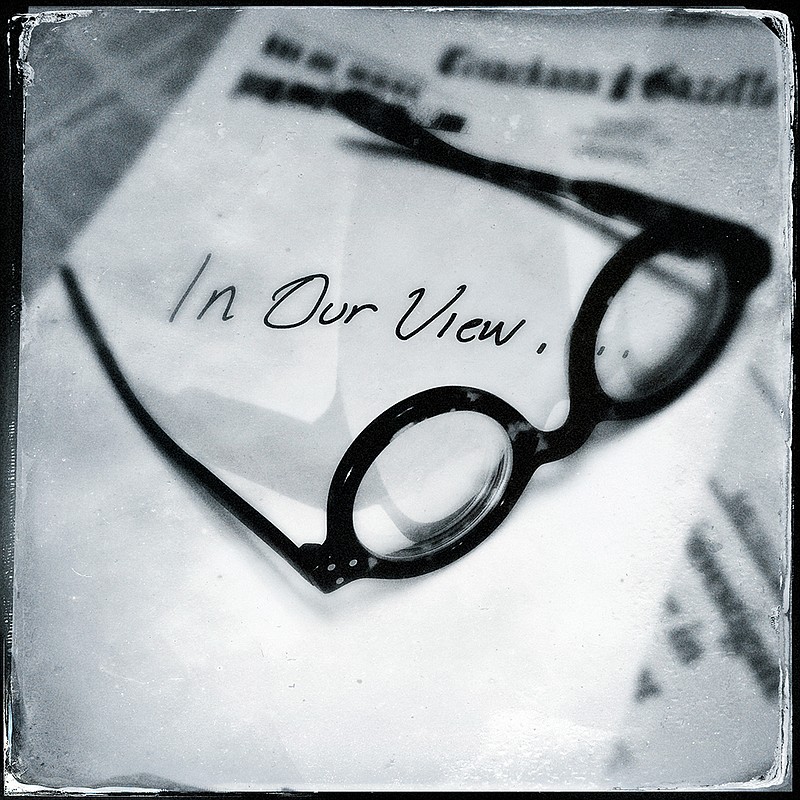A strange thing happened when Debbie Reynolds died three days after Christmas-just one day after Carrie Fisher died and three days after we lost George Michael.
Twitter was humane.
Unified in mourning, collectively in shock, Twitter users turned to the platform to vent their grief, post appreciations and share cherished memories of the artists who gave us so much. Snark and venom, Twitter's twin trademarks, were temporarily quieted-drowned out by genuine human emoting.
It didn't last long. By New Year's Eve, snark was back in spades-just in time for Mariah Carey to be crucified for botching her "Dick Clark's New Year's Rockin' Eve" performance. I guess Twitter only likes flawed celebrities when they're dead.
Twitter is an endless supply of up-to-the-minute headlines and an all-access pass to the musings of our favorite writers, celebrities and newsmakers. It's President-elect Donald Trump's preferred means of communicating with the American people. It has started to feel essential.
But it's also a cesspool-the playground of trolls and bigots who shout down opposition with threats of rape and other violence.
And Lindy West is done with it.
West, a whip-smart cultural critic and author of last year's "Shrill: Notes From a Loud Woman" (Hachette Books), wrote a fantastic essay in Tuesday's Guardian explaining why she deactivated her Twitter account.
Whatever you think of West-love her, hate her, never heard of her-the essay is well worth your time.
"Twitter, for the past five years, has been a machine where I put in unpaid work and tension headaches come out," West writes. "I write jokes there for free. I post political commentary for free. I answer questions for free. I teach feminism 101 for free. Off Twitter, these are all things by which I make my living-in fact, they comprise the totality of my income. But on Twitter, I do them pro bono and, in return, I am micromanaged in real time by strangers; neo-Nazis mine my personal life for vulnerabilities to exploit; and men enjoy unfettered, direct access to my brain so they can inform me, for the thousandth time, that they would gladly rape me if I weren't so fat."
West has experienced shocking levels of abuse on the platform. (Even her farewell was met with and profanity and taunts about her weight.)
And she's far from unique in that regard. Sports journalists Julie DiCaro and Sarah Spain went public last spring with the venom they endure. Guardian writer Jessica Valenti took a break from Twitter after receiving death and rape threats directed at her 5-year-old daughter. Actress Leslie Jones has had despicable vitriol thrown her way.
In November, Twitter announced it was adding new measures to combat the abuse, offering users an easier way to hide content they don't want to see and training support teams to spot abusive tweets.
It hasn't helped much, and that's what pushed West to take off.
"The breaking point for me wasn't the trolls themselves," she writes. "It was the global repercussions of Twitter's refusal to stop them. The white supremacist, anti-feminist, isolationist, transphobic 'alt-right' movement has been beta-testing its propaganda and intimidation machine on marginalized Twitter communities for years now-how much hate speech will bystanders ignore? When will Twitter intervene and start protecting its users?-and discovered, to its leering delight, that the limit did not exist. No one cared.
"I quit Twitter because it feels unconscionable to be a part of it-to generate revenue for it, participate in its profoundly broken culture and lend my name to its legitimacy. We can do good work elsewhere."
This has me cheering.
It's like watching a friend finally leave a lousy marriage. It's a "thanks, no thanks" to a power structure that lures you in, benefits from your contributions and then pretends dehumanizing abuse is just part of your dues.
I hope West's decision sets the tone for 2017. I hope she's the first of many people who look hard at the relationships and industries we support to determine whether they're mutually beneficial and aligned with our values. And when they're not, I hope we do our good work elsewhere.
One of my favorite lines in "Shrill" comes toward the end. "Our world isn't fixed, the way those currently in charge would have you believe," West writes. "It's malleable."
Twitter has its benefits, and it's capable of humanity. But too often it falls short of it, and West's decision reminds us that's not OK.
Let 2017 be the year we remember that our world is malleable and it benefits richly when each of us listens to our conscience.

